IQC faculty member and University Research Chair at the University of Waterloo Michele Mosca delivered the latest entry in Entangled: The Series last night with QUANTUM + security. A crowd ranging from laymen to quantum experts came to hear how quantum technology can provide many benefits, but also pose great risks to our security. Mosca wrapped up with some hope for a quantum future and a Q&A that continued well after the lecture was over.
The power of quantum
To understand what quantum physics has to do with our security, Mosca first explored the strange phenomena of the quantum world and how they can be exploited to improve many different areas of our lives. Using simple math and examples, he explained superposition, quantum vs. classical detection, interference and quantum computing, along with the potential advantages and applications of each.
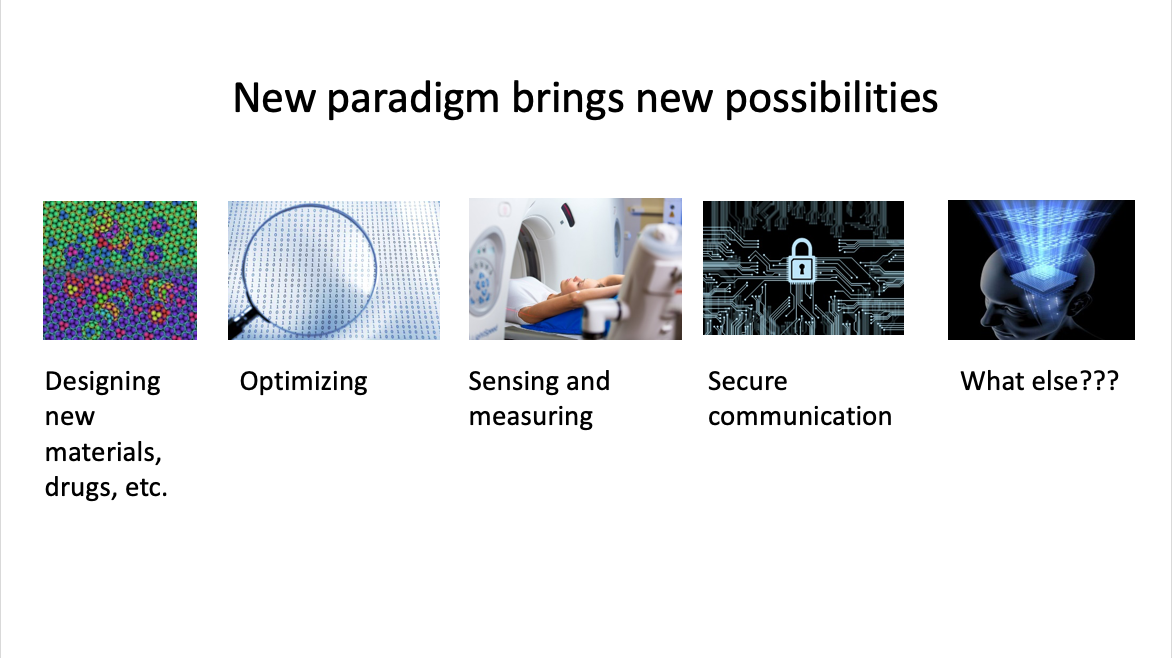
Mosca then explained how we currently are able to transmit sensitive information over networks we don't always trust, like the internet. Given the potential power of quantum in the near future however, he stressed that our current methods of ensuring security won't be enough.
Four quantum threats
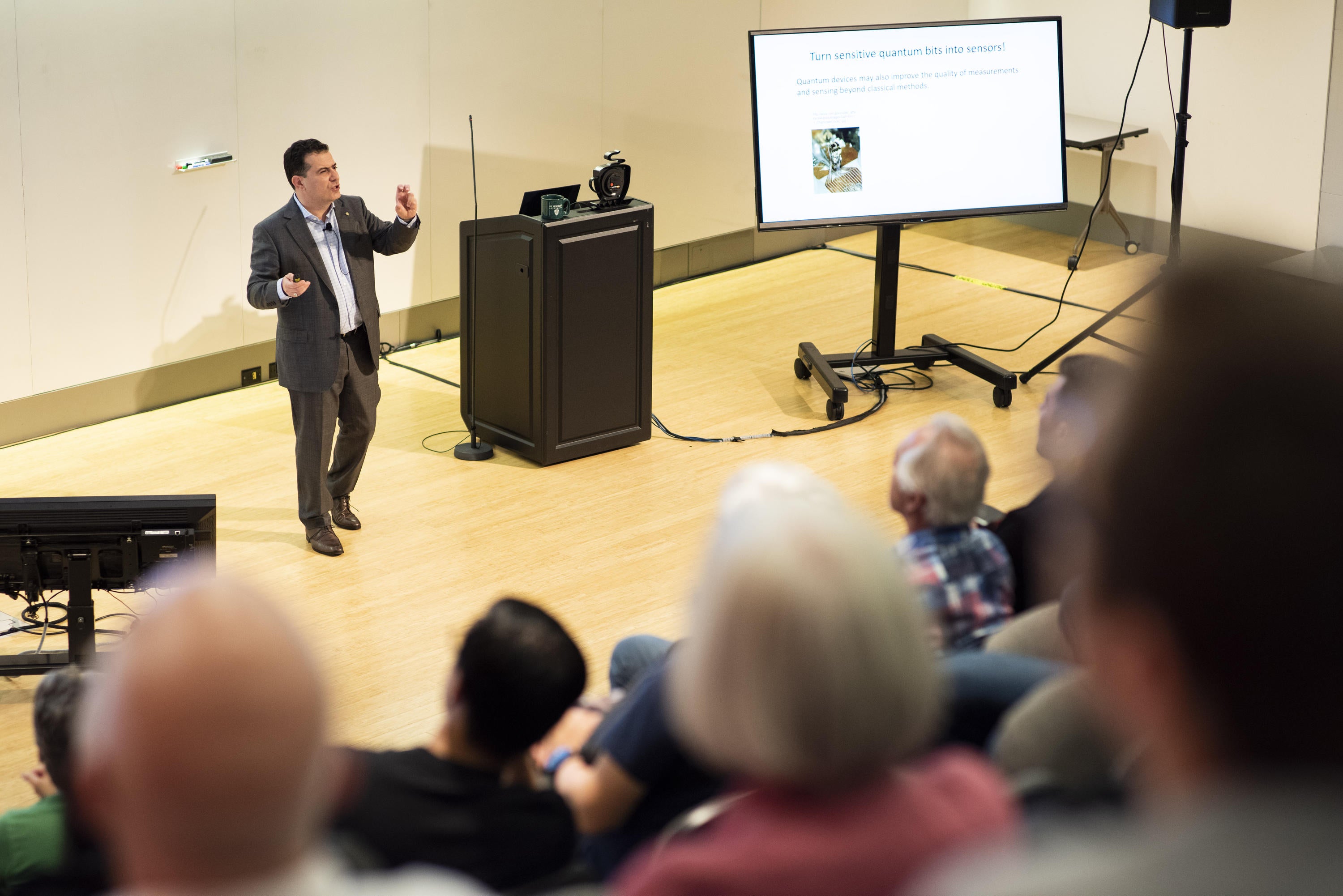
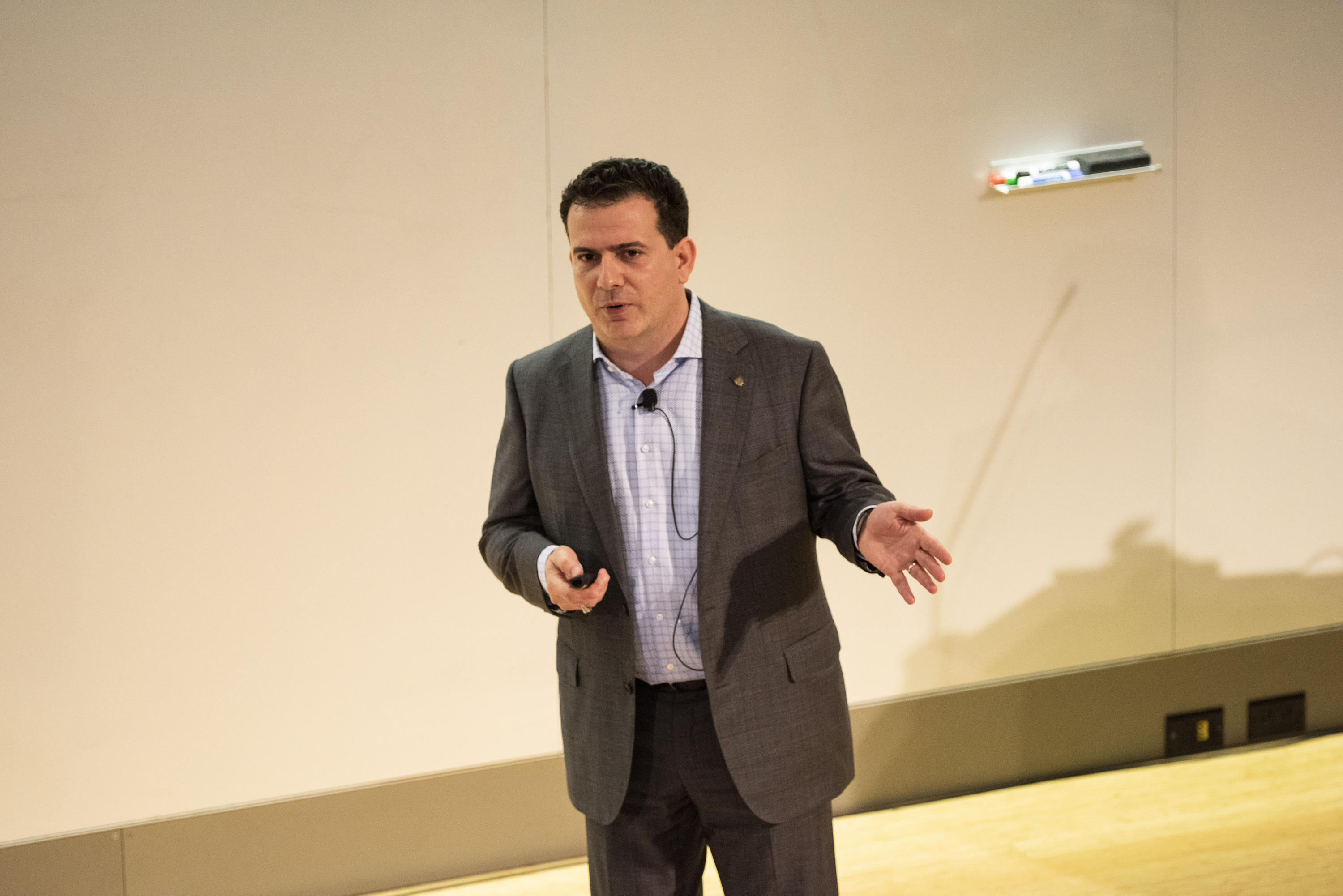
Mosca identified four key threats to our security in a quantum future:
- There will be a loss of confidentiality and data integrity.
- Critical infrastructures will fail with no quick fix.
- Rushing a response to threats and attacks is expensive, disruptive, and leads to vulnerable implementations.
- We will lose trust in the tools and institutions underpinning our digital economy.
Likely, society will only react once we face the fourth threat—by then, Mosca warns, it will compromise our ability to take the necessary steps to ensure our infrastructure secure. These seem like imposing challenges, but Mosca argued that there is hope, given we take the right steps.
The quantum-safe cryptography tool chest
There are several methods of making our information systems safe from quantum attacks, according to Mosca. Conventional quantum-safe cryptography, also known as post-quantum cryptography or quantum-resistant algorithms, are simply new algorithms within a classical paradigm that can be developed to be resistant to potential quantum-based attacks.
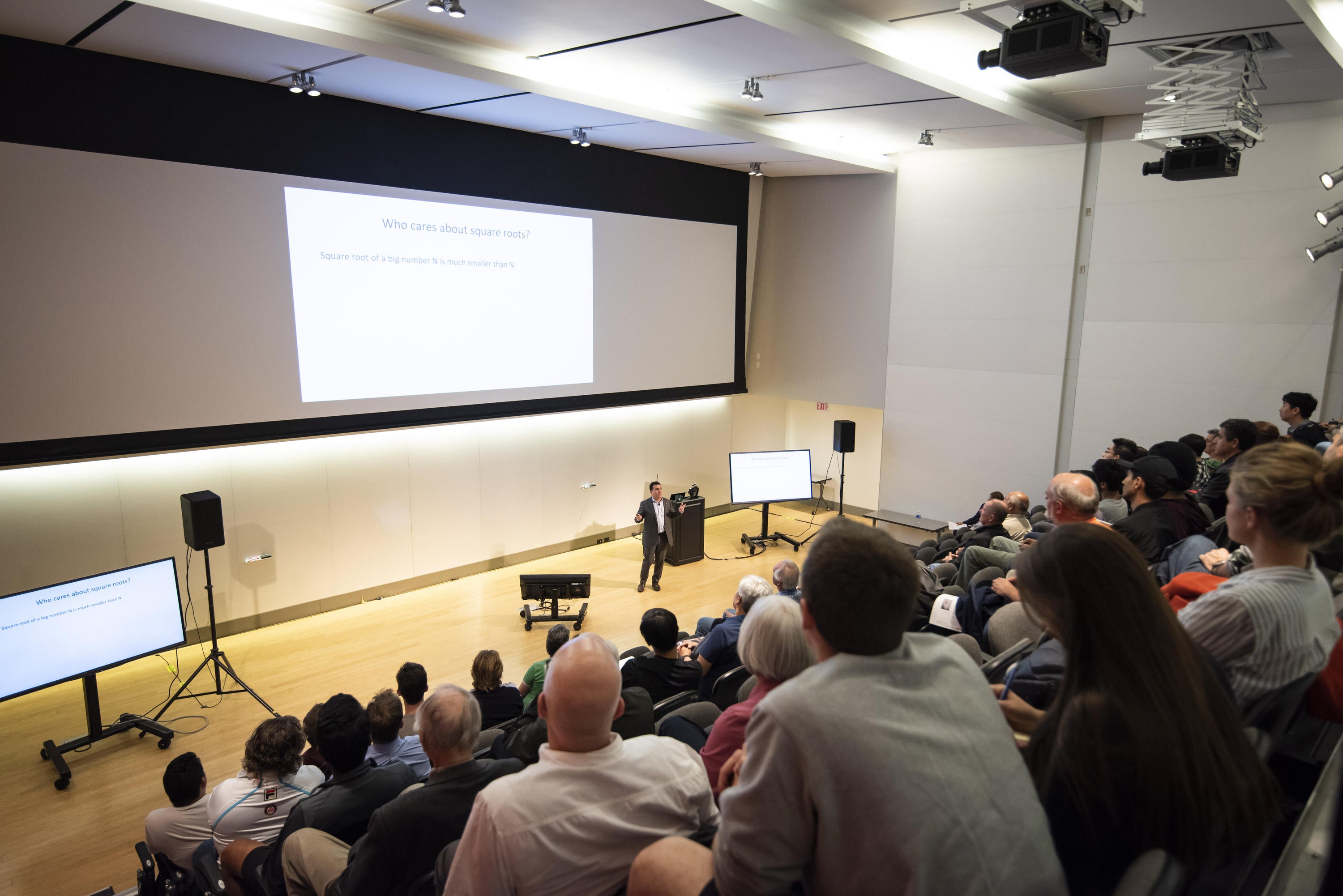
Alternatively, there is also quantum cryptography, like quantum key distribution (QKD), which uses the special phenomena of quantum physics to make information totally secure. Though they are sometimes viewed as competing responses to the quantum threat, Mosca emphasized that both sets of cryptographic tools can work very well together.
Security is a choice
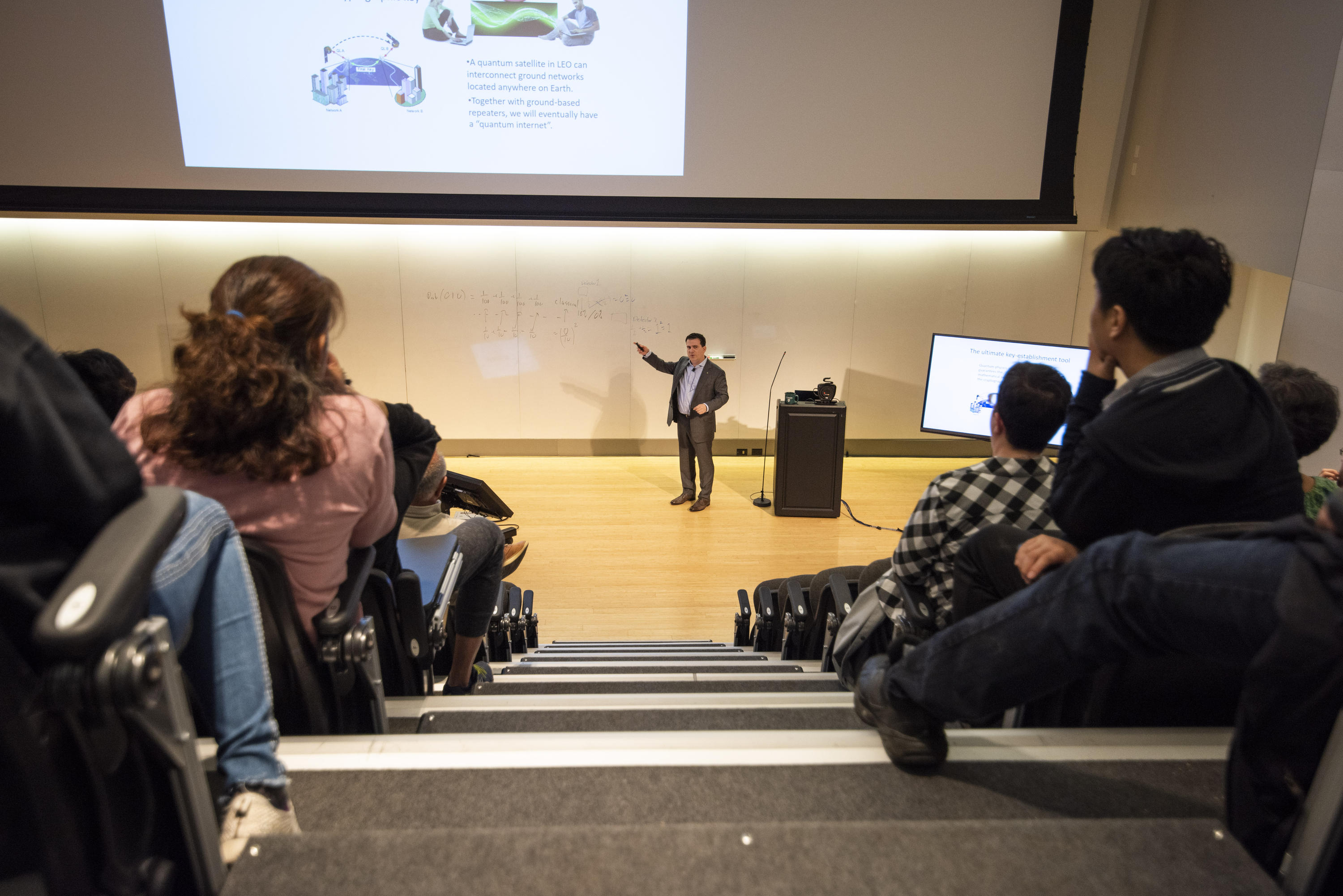
Finally, Mosca emphasized that security is a choice we make. There are many steps that can be taken; all that is needed is the will to take them. There are ongoing efforts to develop global standards and certifications for post-quantum cryptographic tools that will help ensure global information security. There are also ways of testing and prototyping post-quantum algorithms against future quantum attacks right now, so we can be ready when the time comes. Ongoing efforts to develop QKD systems, such as the QEYSSat project at IQC, might serve as a new critical infrastructure for secure information networks.
Will quantum make us more or less secure?
According to Mosca, if we're reactive, quantum will make us less secure. If we're proactive, it will make us more secure.
We have the opportunity to capitalize on the advantages quantum can provide without the downsides, so long as we act soon to safeguard our digital economy.